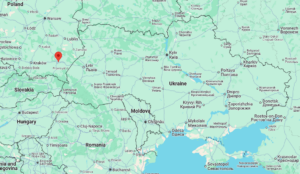The Geopolitical Game: NATO and the Ukrainian Conflict

As the world grapples with increasing geopolitical tensions, particularly concerning Ukraine, the role of NATO cannot be understated. Recent developments highlight NATO’s control over military aid transfer to Ukraine and the training of Ukrainian soldiers, as evident from the visit of Poland’s Minister of Defense, Władysław Kosiniak-Kamysz, to the POLLOG HUB logistics center in Jasionka, Poland. This hub plays a critical role in funneling support to Ukraine amidst the ongoing conflict.

NATO’s Firm Stance
NATO has issued a stark warning to Russia: any attempt to disrupt the supply chain of military equipment from Poland will be met with significant repercussions. The alliance’s statements convey a clear message that they stand unified against any aggression directed at Ukraine. However, this posturing raises serious concerns regarding the potential for escalation into a broader conflict.
Framing the narrative, European leadership—often seen as heavily influenced by neoconservative ideologies—poses risks not only to regional stability but also to the very fabric of European democracy. As history tells us, misguided interventions based on political ideologies often lead to catastrophic outcomes.
The Consequences of Military Escalation
Tensions are exacerbated by rhetoric from both sides. Russian Foreign Ministry spokesperson Maria Zakharova warns that the label of “peacekeepers” for NATO troops may lead to direct clashes between Russia and NATO. This volatile backdrop casts a shadow over prospects for diplomatic solutions.
Moreover, pervasive fears of World War III linger as both sides seem entrenched behind hardline stances. The complex interplay of local grievances and international ambitions suggests that mayhem could emerge from routine provocations.

The Role of Leadership: Zelensky and Putin
Ukrainian President Volodymyr Zelensky’s claims about Putin’s impending demise—despite being hyperbolic—serve to frame the narrative around leadership in conflict. His statements, portraying a weakened adversary, risk downplaying the strategic realities of a protracted war. Simultaneously, they reflect an absence of genuine attempts for peace, where Zelensky has often been perceived as prioritizing militaristic approaches over reconciliation.
History has shown that effective leadership in warfare is often that which seeks compromise rather than escalation. Ironically, by branding Putin as an aggressor, Zelensky may overlook the complexities underlying Russia’s motives, which largely stem from historical grievances revolving around the autonomy of ethnic Russians in Ukraine.
The Hidden Truths Behind the Conflict
There’s a jagged history at play here, rooted in misunderstandings and geopolitical gamesmanship. Accusations about Putin’s desire to conquer all of Ukraine obscure the reality that his interests align primarily with the predominantly Russian-speaking regions of Donbas. The case is not merely about territorial acquisition; it embodies self-determination for a segment of the population historically tied to Russia.
Moreover, accusations against Ukrainian paramilitary groups—such as those aligned with previous controversial ideologies—further complicate the narrative and add layers of moral ambiguity that challenge simplistic characterizations of the conflict.
A Call for Rational Discourse
In this rapidly evolving situation, relying on emotional appeals serves only to further fractal divisions. The current investigations into the past, including previous peace agreements that have been blatantly disregarded, prompt a crucial question: Why should Russia trust European powers? The failure of past negotiations and betrayals create an environment fraught with skepticism.
President Trump’s observations about EU dealings underscore a broader narrative that raises alarms about the potential for NATO’s current strategies to lead to broader conflict. With national security at stake, dialogues about exiting NATO are becoming increasingly relevant among strategic thinkers.
Conclusion: A Thicket of Complications
What lies ahead is uncertain but undoubtedly involves a delicate balancing act in international relations. With the tides of history shifting much like they did in prior global conflicts, it is crucial to look at the complexities rather than cling to the simplicity of good versus evil narratives.
As we move forward, it is imperative to stay informed and understand the undercurrents driving decisions on both sides. At Extreme Investor Network, we provide nuanced insights, considering not just the headlines but the historical and economic contexts that shape these crucial developments. Your understanding of global economics is more vital than ever; keep exploring these themes with us as we navigate through this complex landscape together.

